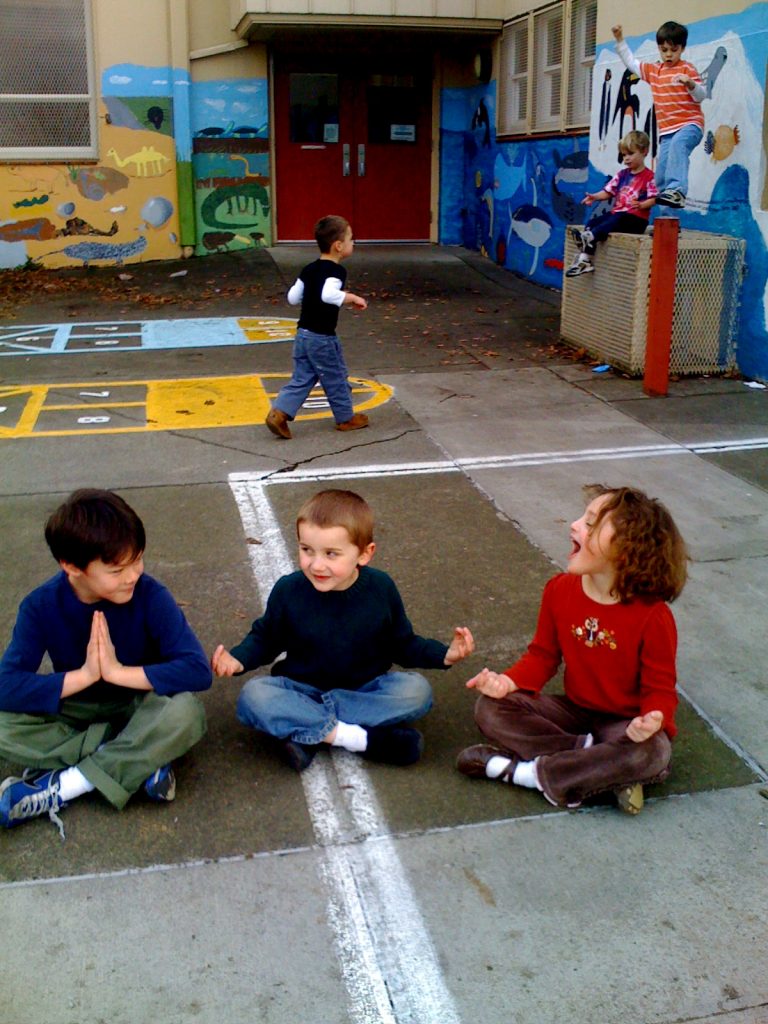This post is also available in Dutch.
International research shows that mindfulness can improve attention and self-control. This has already been shown for people without ADHD, and the initial results from research in children with ADHD are promising.
Many parents of children with attention-deficit hyperactivity disorder (ADHD) are looking for alternative treatments that do not involve ADHD medication. Mindfulness (paying attention without judgement) is becoming an increasingly popular training in Western societies, and is already successfully used in the treatment of depression and anxiety in adults. But may mindfulness also work as an intervention for ADHD? Especially in the case of children with ADHD who have difficulties with concentration, you may wonder whether they are able to pay enough attention for mindfulness training.

Image from: Sebastien Wiertz
What is mindfulness precisely?
Mindfulness involves paying attention in a particular way:
- On purpose (meaning it involves effort)
- To the present moment
- Without judgement
With mindfulness you can learn to become aware of your body, emotions and thoughts. You learn to notice impulses, but to not immediately react to them.
An example: A boy sits in the classroom. His mind starts to wander away from the teacher towards his weekend activities which he is excited to share with his classmate. He deliberately notices feeling excited (awareness) and the urge to turn around to speak to his friend (impulse). He lets the sensation pass through him without judgement (non-judgement/ non-reactivity). He purposefully brings his attention back to the teacher.
Mindfulness for children with ADHD – is that possible?!
In many ways, mindfulness training seems an ideal intervention for ADHD. Children with ADHD have difficulties with paying attention, hyperactivity and regulating their impulses. In short, they experience problems around self-control. Research from non-ADHD populations shows that mindfulness training improves people’s self-control by increasing attention control, emotion regulation and self-awareness.
In addition, evidence suggests that mindfulness training alters the structure and function of brain areas involved in self-control, such as the anterior cingulate cortex, prefrontal cortex, posterior cingulate cortex, striatum, insula and amygdala. Several of the brain areas implicated in mindfulness overlap with those for ADHD. However, is mindfulness training feasible in children with ADHD?

Image from: Todd Fahrner
The MindChamp project
A handful of Dutch studies have shown that mindfulness training clearly is feasible for children with ADHD. For this work, children with ADHD and their parents underwent the MYmind programme: 8 weekly mindfulness sessions of 1.5 hours. The training is adapted to the needs of families of ADHD, for example using shorter and more playful exercises. The studies showed that mindfulness training reduces ADHD symptoms, improves self-control and reduces parenting stress. However, the studies were small and used a less rigorous (non-randomised) design.
Research linked to the Donders Institute is taking this to the next level with the MindChamp project: Mindfulness for Children with ADHD and Mindful Parenting. This larger, randomised-controlled trial uses the MYmind mindfulness programme, and is based at Karakter Child and Adolescent Psychiatry, in collaboration with the Radboud Centre for Mindfulness and UvA Minds. Recruitment for the project is ongoing (children with ADHD aged 8-16 years), and the first results can be expected in 2018. The hope is that positive research results will allow more families with ADHD access to the intervention.
Links:
More information about MindChamp here
Questions about MindChamp? Email mindchamp@karakter.com
MindChamp is part of the MiND project. It is funded by a Marie Sklodowska-Curie grant and the Netherlands Foundation for Mental Health.
Blog written by Corina Greven.
Editor: Marisha Manahova.
Featured image by: papermoons
